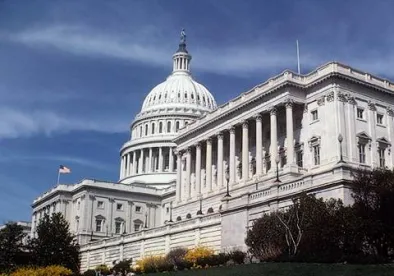Last week the Senate Judiciary Committee held two of three scheduled hearings on “The State of Patent Eligibility in America.” Many witnesses with prominent roles in the patent field testified in favor of legislative action to rein in recent Supreme Court decisions, but others warned against throwing out the baby with the bath water, and some saw no problem with the status quo. The hearings follow the draft bill introduced by Senators Tillis (R-NC) and Coons (D-DE) and Representatives Collins (R-GA-9), Johnson (D-GA-4) and Stivers (R-OH-15), which you can read about here.
Testimony In Favor of Patent Reform
Witnesses in favor of patent reform included retired Judge Michel (formerly Chief Judge of the Federal Circuit), Q. Todd Dickinson (former Under-Secretary of Commerce for Intellectual Property and Director of the USPTO), David Kappos (former Under-Secretary of Commerce for Intellectual Property and Director of the USPTO), Henry Hadad (President of Intellectual Property Owners Association), Hans Sauer (Deputy General Counsel for Intellectual Property for Biotechnology Innovation Organization), Barbara Fiacco (President-Elect of the American Intellectual Property Law Association), and many others.
The program and testimony for the first day of hearings—which included witnesses with diverse viewpoints—can be found here.
Testimony Against Patent Reform
Not surprisingly the ACLU—the force behind the Myriad decision—strongly opposed the draft bill. The ACLU testimony paints a dramatic picture, similar to how it convinced the Supreme Court to “free our genes”:
The effect will be to greatly expand what can be patented, opening the door to a world in which private parties could claim 20-year monopolies on, for example, human genes, associations between genes and diseases, naturally occurring associations or processes, or common abstract practices, like hedging risk, through clever drafting by patent lawyers. By eradicating categories of subject matter ineligible to receive patents, the legislative proposal would no longer disallow patents on what should properly remain in the commons.
The Tillis-Coons framework’s expansion of patent eligibility would also trigger constitutional questions. The framework would permit government-sanctioned monopolies to private parties over fields of knowledge, limiting information sharing and free experimentation, raising serious concerns about whether the patent system would be blocking, rather than promoting, progress. There can be little doubt that government-granted exclusive monopolies over bodies of knowledge, including patents on human genes, human thought processes, or abstract ideas would violate our constitutional rights to speak, and express ourselves, and receive information free from government restraint.
Also not surprisingly, Jeffrey Francer, speaking on behalf of the Association for Accessible Medicines—a trade association “for manufacturers and distributors of FDA-approved generic and biosimilar prescription medicines” —also opposed any changes that would broaden patent eligibility. Mr. Francer focused on the bottom line, arguing that patents increase health care costs:
The proposed revisions—which include expressly overruling more than 150 years of carefully crafted Supreme Court precedent—would incentivize monopolistic bad actors, deny patients access to lifesaving treatments and diagnostics, and reverse progress this Committee has made to lower drug prices for Americans. Making it easier to obtain less innovative patents fundamentally disrupts—and certainly does not promote—the “progress of science and useful arts.”
According to Mr. Francer, the draft bill would promote patent thickets, stifle innovation, and undermine Congressional efforts to control prescription drug costs.
Also not surprisingly, some witnesses representing the software sector opposed the draft bill.
Christopher Mohr, testifying on behalf of the Software and Information Industry Association, explained that the Supreme Court’s Alice framework is working for its members. According to Mr. Mohr, under Alice, “non-technological patents” can be invalidated at the motion to dismiss stage of litigation, while “important patents” “on true technical innovations” still can be enforced.
Stephanie Martz, testifying on behalf of United for Patent Reform, credited Alice with reining in “patent troll” litigation, and warned that the proposed bill “would reopen the floodgates for abusive patent litigation by non-practicing entities … and discourage job creation without incentivizing innovation.” According to her testimony, United for Patent Reform is “a coalition of diverse American businesses” with members ranging “from Main Street retail shops, REALTORS®, hotels, grocers, convenience stores, and restaurants to national construction companies, automobile manufacturers, and technology businesses.”
The program and testimony for the second day of hearings—which included witnesses with diverse viewpoints—can be found here.
More Testimony From Stakeholders
Before the Judiciary Committee begins to weigh, balance, and reconcile these opposing views, it will hold one more day of hearings, on June 11. Many witnesses scheduled to testify are from corporations in different industries, including Manny Schecter (Chief Patent Counsel for IBM), Laurie Self (Senior Vice-President and Counsel, Government Affairs for Qualcomm), Byron Holz (Senior Intellectual Property Rights Licensing Counsel for Nokia), Laurie Hill (Vice President, Intellectual Property for Genentech), Gonzalo Merino (Vice President and Chief Intellectual Property Counsel for Regeneron Pharmaceuticals), Peter O'Neill (Executive Director for Cleveland Clinic Innovations), and others. It will be interesting to see what these diverse companies want lawmakers to know about the state of patent eligibility in America.
The program (and, eventually, the testimony) for the third day of hearings can be found here.




 />i
/>i

